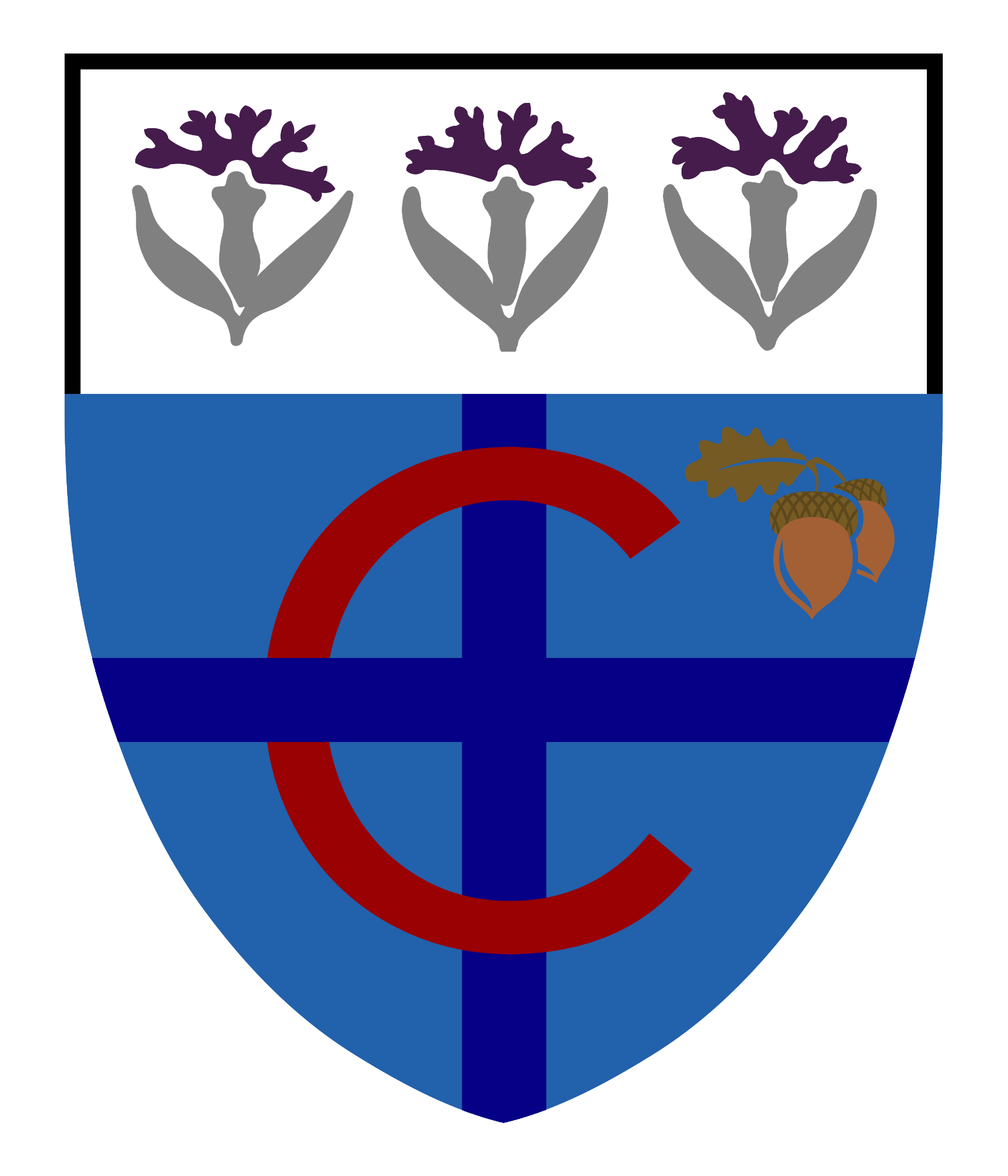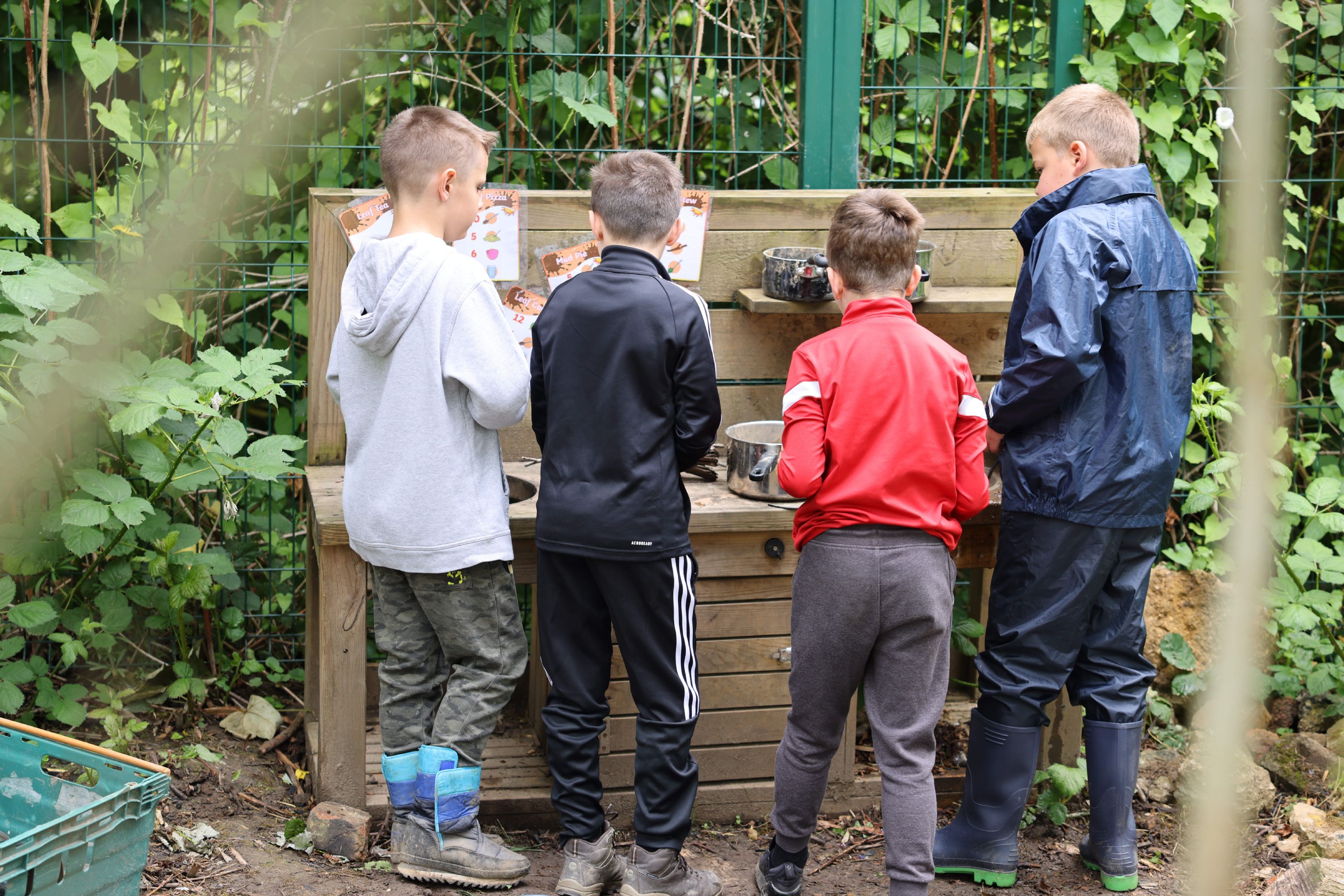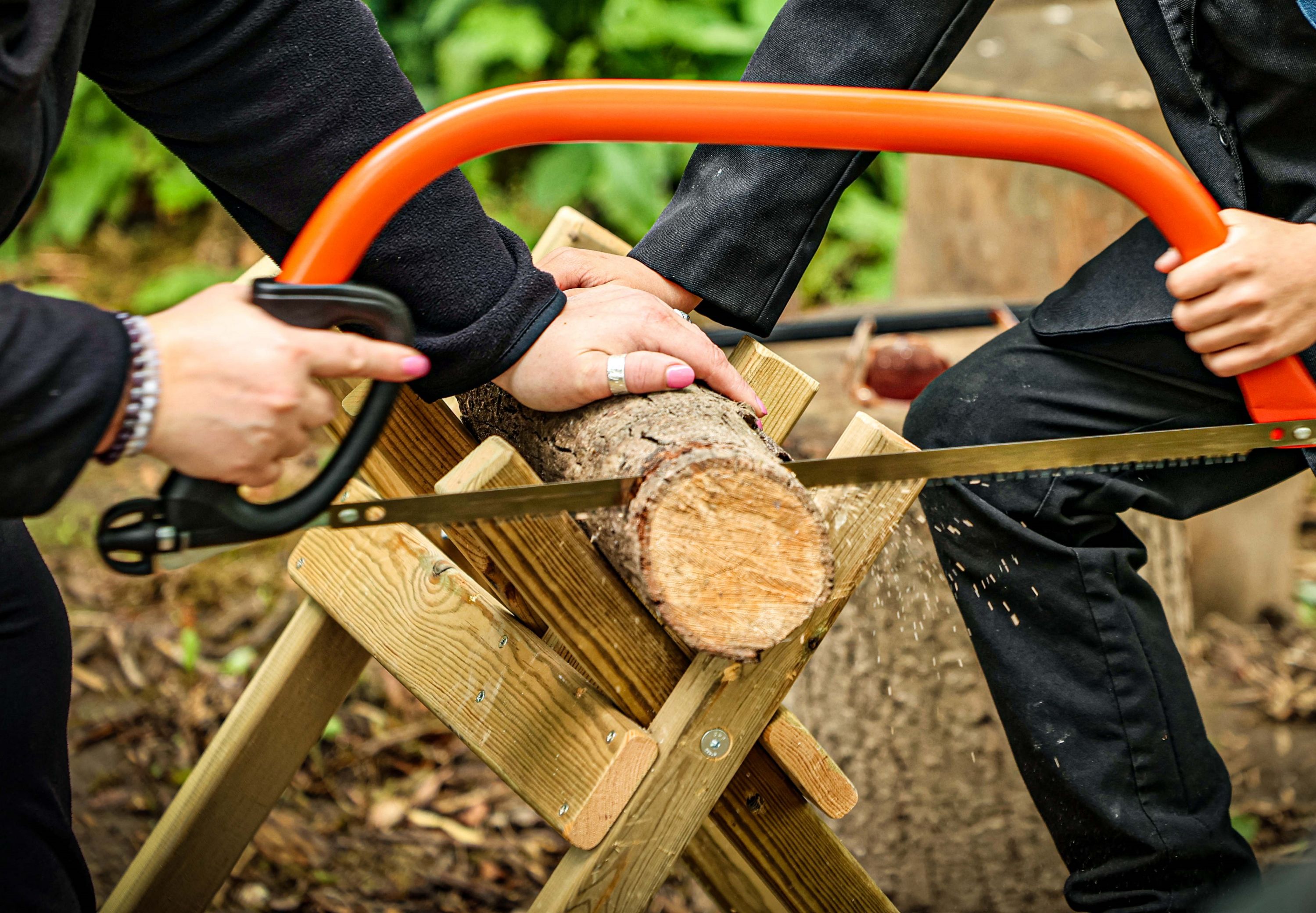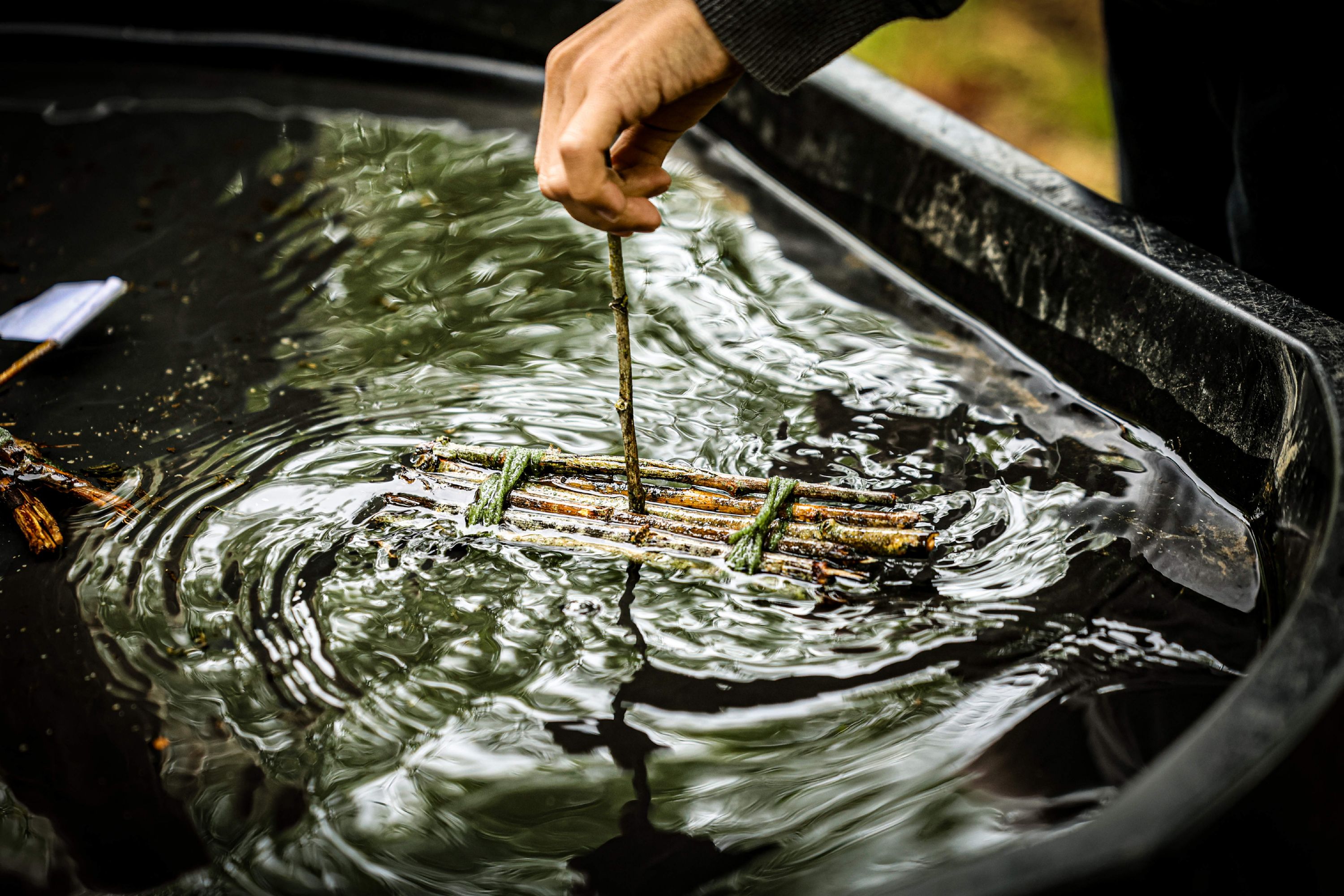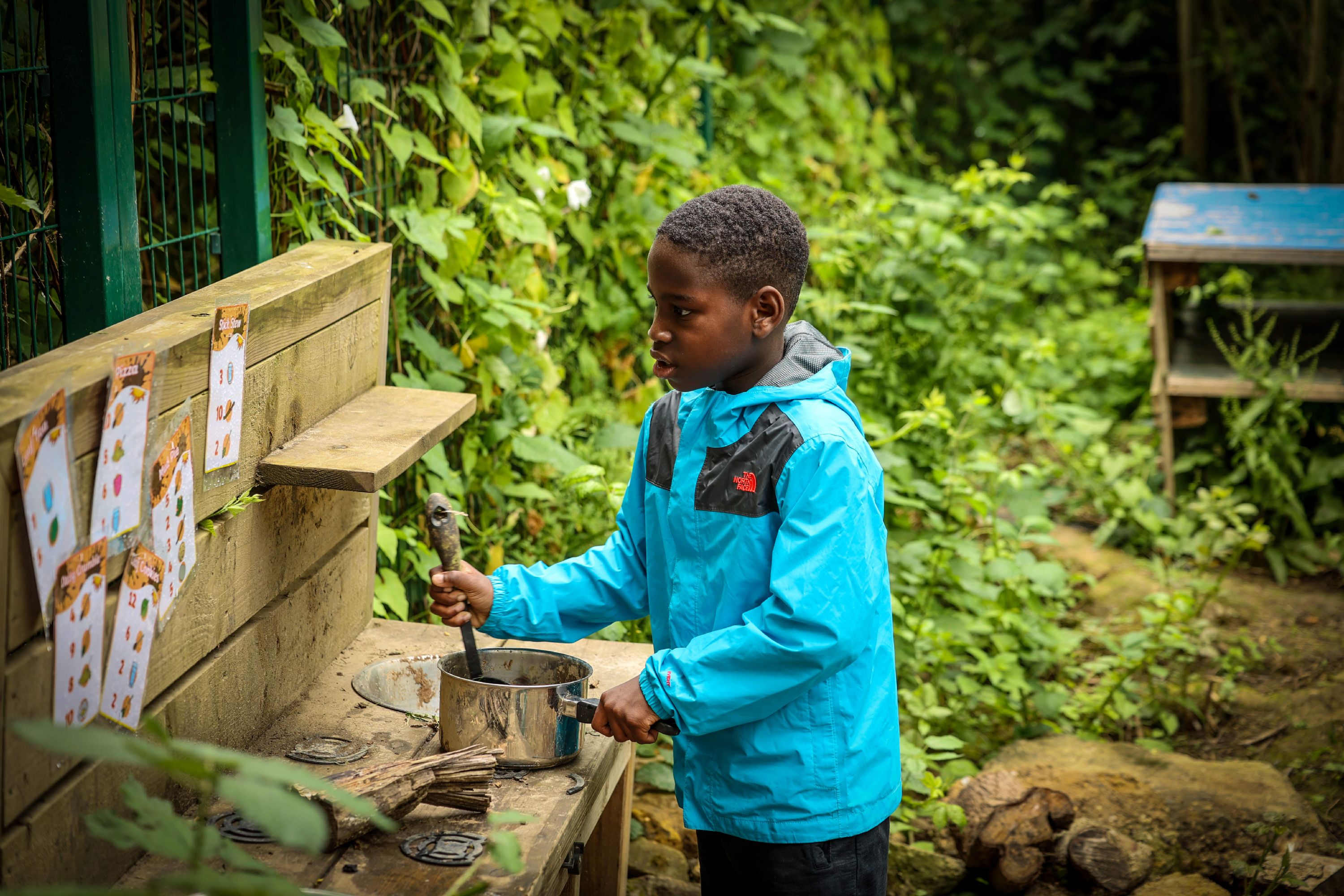Forest School
Our School Vision:
“The rain came down, the streams rose, and the winds blew and beat against that house; yet it did not fall, because it had its foundation on the rock.” (Matthew 7:25)
Bishop Chavasse Church of England School Policies are all underpinned by our school parable ‘The Wise and the Foolish Builder.’
Jesus is at the heart of Christianity. As a church school we believe that, like the wise man, those who are guided by the word of God in the Bible and trust in him will become wise, compassionate and honest; be empowered to weather all storms, help one another flourish and make a difference in the world.
At Bishop Chavasse Primary School, we believe that outdoor learning and Forest School are integral components of a well-rounded education. Our intent is to cultivate a deep appreciation for the natural world, foster curiosity, and develop essential life skills in our students. Through purposeful engagement with the outdoor environment, we aim to:
1. Promote Holistic Development:
- Encourage physical well-being through outdoor activities that enhance gross and fine motor skills.
- Nurture emotional and social intelligence by fostering teamwork, communication, and resilience in challenging outdoor scenarios.
2. Ignite Curiosity and Creativity:
- Create an environment that sparks curiosity about the natural world.
- Provide opportunities for imaginative play, problem-solving, and creativity through outdoor exploration.
3. Enhance Academic Learning:
- Integrate outdoor experiences into the curriculum to reinforce and extend classroom learning.
- Develop cross-curricular links, enabling students to apply theoretical knowledge to real-world situations.
4. Cultivate Environmental Responsibility:
- Install a sense of environmental stewardship by fostering respect for nature and understanding the impact of human actions on the environment.
- Empower students to become advocates for sustainable practices and positive environmental change.
Implementation:
1. Integrated Curriculum Planning:
- Collaborate across subject areas to weave outdoor learning experiences into the curriculum.
- Ensure a progressive and sequential approach to outdoor learning, building on students' previous experiences.
2. Diverse Learning Environments:
- Utilise the school grounds to provide a variety of outdoor learning settings.
- Offer a range of activities, from structured lessons to unstructured play, to accommodate different learning styles and preferences.
3. Risk-Assessed Activities:
- Conduct thorough risk assessments for all outdoor activities, ensuring the safety and well-being of students.
- Foster a culture of responsible risk-taking, allowing students to develop resilience and problem-solving skills in a controlled environment.
- Use a selection of age-appropriate tools within their sessions, learning new skills and gaining confidence to split, cut, whittle, drill and join wood together.
- We plan for children to become more independent using the tools, making their own choices on what they create.
Impact:
1. Student Engagement and Attainment:
- Monitor and assess the impact of outdoor learning on student engagement, academic attainment, and overall well-being.
- Use feedback from students, teachers, and parents to continually refine and improve outdoor learning experiences.
2. Holistic Development:
- Track the development of students' physical, social, emotional, and cognitive skills through participation in outdoor activities.
- Celebrate achievements and progress in these areas, recognising the broader benefits of outdoor learning.
3. Environmental Awareness:
- Measure the impact of outdoor learning on students' understanding of and commitment to environmental sustainability.
- Encourage students to reflect on their role in preserving the natural world and inspire positive behaviour change.
4. Community Engagement:
- Foster a sense of pride and involvement within the school community by sharing the outcomes and experiences of outdoor learning initiatives.
- Collaborate with parents and the wider community to strengthen the link between outdoor learning and positive outcomes for students.
This curriculum intent document serves as a guide for the implementation of our vision for outdoor learning and Forest School at Bishop Chavasse Primary. Through careful planning, continuous evaluation, and a commitment to excellence, we aspire to create a vibrant outdoor learning environment that enriches the educational journey of every student.
Forest School at Bishop Chavasse School allows more than just opportunities for children to develop their imaginations; it allows children chances to grow socially, emotionally, spiritually, physically, and intellectually. This in turn allows the children the opportunities to risk take and build up resilience helping them to grow as lifelong learners.
At Bishop Chavasse, we follow the Forest School Principles allowing children the freedom to develop their imaginations through the natural world.
The Principles
- It is a long-term process with frequent and regular sessions to a natural space that is not just a one-off session. These sessions have a structure which is based on what is seen by the Forest School Lead and assistants as well as what the children are asking for in their sessions. Children at Bishop Chavasse School have approximately nine sessions across the course of the year allowing opportunities to explore and experience different seasons.
- It takes place in a location of nature either in a woodland or a natural environment to allow the child and the natural world to develop a relationship and connection. This allows the children plenty of space and an environment in which they can explore and discover what it has to offer their learning. At Bishop Chavasse we are very lucky to have a permanent shelter within the Forest School site - this allows us to always go outside regardless of the weather. Please see below clothing suggestions for the different seasons. See also the link to a website which explains the importance of clothing layers Layers explained | Outdoor clothing | Muddy Faces
|
Summer kit list |
Spring and Autumn kit list |
Winter kit list |
|
|
|
- It develops and promotes the holistic development of the children, and the practitioners involved, as they create links to experiences the children may be involved with as well as fostering resilience, confidence, independence, and creative learning to take place. At Bishop Chavasse School we have created a scheme of skills-based learning opportunities which develop year on year. The scheme is broken down into the following categories.
- Shelter building: building small dens for small soft toys, learning and using the different types of structures such as a tripod, using natural and tarpaulin-based materials and working as a team to play and sit inside structures.
- Use of tools: the opportunities to use the following tools when age and stage appropriate with various levels of support, peelers, trowels, hammers, saws, secateurs, bill hook and knives.
- Understanding our environment: identification of a variety of flora and fauna, fieldwork and classification, planting, growing and maintenance of the site.
- Fire: learning safety procedures, gather fuel, assist use of a Kelly kettle for making drinks, support and then manage the tending of the campfire.
- Geographical skills and navigation: use directional language, use a compass, describe features on a map, use a map, plan and follow a route using symbols.
- Knots.
- Arts and crafts.
- It encourages risk taking that is appropriate to themselves as well as the environment in which they are working. This builds on what the child is motivated in and what tools are deemed appropriate to the children. Through a base line assessment taken by the Forest School lead the children can jointly develop their tools and fire knowledge and skills using the risk and benefits assessments to manage the experience, making sure it is tailored to the correct developmental stage of the learner.
- It will be run by a qualified Forest School Practitioner who will continue to develop their professional practice. The Forest School lead should be reflective in their practice continuing to drive their journey forward encouraging the principle of a lifelong learner. Bishop Chavasse Forest School lead is Mrs Kyte and she is assisted by the class TA.
- One of the biggest drives of Forest School is that it is a learner centred process developing a community that develops and learns together. Taking on board what the children are interested in, what play choices they experience each week and what learning preferences are being demonstrated. Reflective practice after every session is key to planning for future sessions. Through observations the Forest School Lead can tailor learning effectively and thoroughly.
